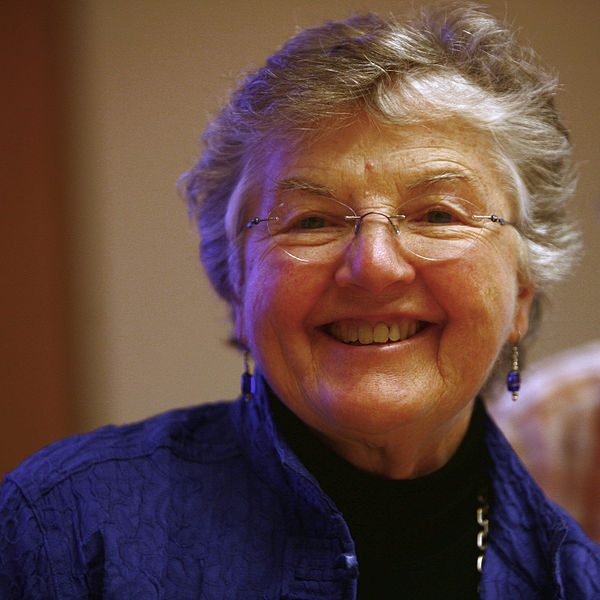
As the first woman to ever receive a Turing Award for her work, Frances Elizabeth Allen is for sure a woman to be seen as a role model. She received the so called “nobel prize of computing” for
[…] pioneering contributions to the theory and practice of optimizing compiler techniques that laid the foundation for modern optimizing compilers and automatic parallel execution.
(Association For Computing Machinery (ACM), Citation for the A.M. Turing Award 2006)
After earning B.Sc. and M.Sc degrees in Mathematics, she started to teach at a school in Peru, New York (yep, there’s a city named like a country). She joined IBM in 1957, planning on paying off her school loans with that job – but she stayed with IBM for the rest of her career.
Let’s hear some more about her from the ACM:
[…] she introduced many abstractions, algorithms, and implementations that laid the groundwork for automatic program optimization technology, […] introduced the use of graph-theoretic structures to […] efficiently derive relationships and identify opportunities for optimization. […] Her 1976 paper with Cocke describes one of the two main analysis strategies used in optimizing compilers today.
(Association For Computing Machinery (ACM), Citation for the A.M. Turing Award 2006)
And that’s still not all of it. In 1989, Fran Allen was the first woman to become an IBM Fellow. Every year, the current CEO of IBM appoints 4 to 9 researchers at IBM an “IBM Fellow”, which is the highest honor a scientiest, engineer or programmer at IBM can receive. The Fellow Programme was created in 1962, in order to promote creativity among the company’s most exceptional technical professionals, only choosing people who will also be making important contributions in future.
Upon retiring in 2002, Fran Allen received the Ada Lovelace Award of the Association for Women in Computing. After also being awarded the Turing Award by the ACM (see citations above) in 2007 (for 2006), she was awarded an honorary doctor in science degree at SUNY University, Albany. In 2009, she received an honorary doctor of science degree at McGill University for her work.
For more information on Fran Allen, here’s her wikipedia entry, which was where I found most of my information for this short portrait. Sorry if some sentences sound very alike, but rephrasing is a bit hard sometimes 😉
Also, if you want to hear Fran Allen speak about her work herself, you can find her Turing Lecture Video here.
One thought on “Role Model Sunday: Frances E. Allen”
Comments are closed.